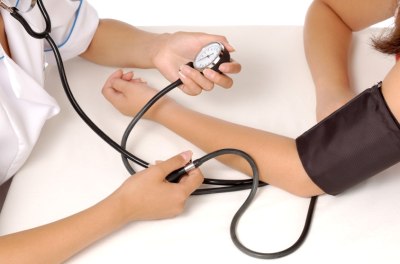Cardiovascular disease kills 200 South Africans every day, are you at risk? 'Get Tested Day' will be celebrated on the 21st of June, encouraging all South Africans to get their health tested. This annual campaign is focused on education and creating awareness of knowing your numbers, knowing your risk.
The Heart and Stroke Foundation SA is deeply committed to educating the nation of the importance of having their blood pressure, cholesterol and glucose screened in an effort to reduce the amount of suffering and deaths linked to heart disease and stroke. Getting tested is the first step!
Why should you check your blood pressure?
High blood pressure (Hypertension) is known as the "silent killer" and unfortunately many South Africans are unaware of the increased risk of not knowing their status.
About six million South Africans suffer from high blood pressure. “Two out of three people with high blood pressure are unaware of the condition. There are many risk factors that predispose one to developing high blood pressure such as an unhealthy diet, excessive alcohol intake, being overweight and lack of exercise,” says Shân Biesman-Simons, registered dietician and Director of Nutrition and Education at the HSFSA. When people are ignorant of their blood pressure number, they are in danger of damaging their arteries and vital organs and this could ultimately lead to a heart attack, stroke, kidney failure and premature death.
All adults should have annual blood pressure checks especially if they have stressful occupations or a family history of hypertension. If you have been diagnosed with hypertension, you should have regular blood pressure checks as advised by your doctor. It may be a good idea to have blood pressure levels checked from an early age, as even children as young as six years old can have high blood pressure, especially if they are overweight.
Is high cholesterol linked to overweight and obesity?
Not always. The most common cause of high blood cholesterol levels is eating too much fat, especially saturated and trans fats. However some people have high cholesterol levels even though they follow a healthy diet (e.g. people who have a rare hereditary condition called familial hypercholesterolaemia, or those who have an under-active thyroid gland, long-term kidney problems or who drink too much alcohol).
All adults over the age of 20 should have a fasting lipogram once every five years, but more often if your total cholesterol is above 5mmol/L, you’re a man over age 45 or a woman over 50 or if you have other risk factors for heart disease and stroke. For a fasting blood test you would need to fast (usually for at least 9 hours) before the test.
The process of atherosclerosis (build up of fatty plaque in arteries) starts in childhood and progresses slowly into adulthood. So some children may need to have their cholesterol checked as well - particularly those from high-risk families (who have parents with high cholesterol, or parents/grandparents with heart disease at 55 years or younger). Its important for every person to have their Cholesterol tested to understand their risk of cardiovascular disease. High cholesterol is a ticking time bomb waiting for be initiated.
Should you only test your glucose levels if you have diabetes?
Again, no.
A blood glucose test measures the amount of a type of sugar, called glucose, in your blood. Glucose comes from carbohydrate foods. It is the main source of energy used by the body. Insulin is a hormone that helps your body's cells use the glucose. Insulin is produced in the pancreas and released into the blood when the amount of glucose in the blood rises.
Normally, your blood glucose levels increase slightly after you eat. This increase causes your pancreas to release insulin so that your blood glucose levels do not get too high. Blood glucose levels that remain high over time can damage your eyes, kidneys, nerves, and blood vessels.
Hence it is critical to have your glucose tested, especially if you:
- Are overweight
- Have a family history of diabetes
- Are a diabetic
- Are over the age of 45 years
If your health numbers are too high, what can you do to lower your levels?
- Maintain a healthy weight
- Avoid smoking - do not invest into this death policy – there are no benefits!
- Eat a diet low in salt and saturated fat
- Consume adequate potassium-rich foods (fruit, vegetables, nuts, low fat or fat free milk)
- Get 30 minutes of physical activity on most or all days of the week eg. Running, dancing, house-cleaning, anything that you will enjoy)
- Limit your alcohol intake to no more than one drink a day for women or two drinks per day for men
Dischem Pharmacies will be offering the SA public free health screenings nationwide for a limited time period from the 19th of June, in support of Get Tested Day and the Big Heart 750 awareness and fundraising campaign.
Visit the Big Heart 750 facebook page, www.heartfoundation.co.za and www.bigheart750.co.za for more information.
You have no excuse to be ignorant. Know your numbers, know your risk!
- SA Heart and Stroke Foundation press release
- (Health24, June 2011)
Read more:
Lifestyle changes beat cholesterol
Heart disease - the risk factors
Stroke - are you at risk?




 Publications
Publications
 Partners
Partners












